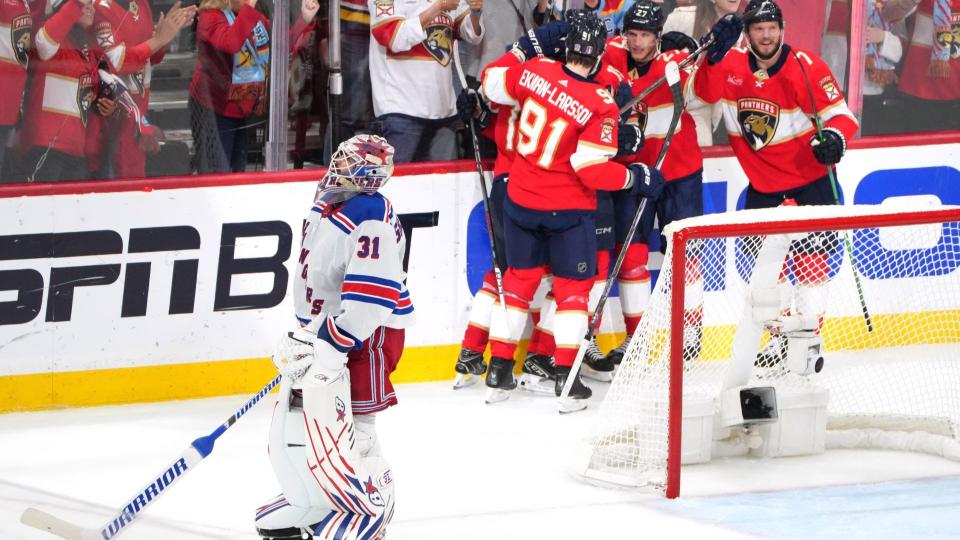Sports
Rangers must sort through offseason of reflection, uncomfortable truths after series loss to Panthers

This end feels different than two years ago, when the Rangers made the Eastern Conference Final in a nifty playoff run that perhaps came sooner than expected. That was a feel-good hockey binge, fueled by dreams of what would come next and how amazing that might be.
But after the Blueshirts fell to Florida Saturday night in Game 6 of this season’s ECF, finishing their high-hopes season, there’s such emptiness, such disappointment. The earlier run was sort of a lark; this one was imbued with so much heavy meaning, tied to such hopes that the 30-year Stanley Cup drought would end.
This Ranger bunch felt different, like it might really have that certain something, in addition to the goalie and all that other talent. Alas, no. It was not 1994 redux, after all. All those wonderful ‘94 parallels everyone dreamed on dried up Saturday night, only so much coincidence or silliness now.
Even with a hot goalie, the Rangers were outplayed by the rugged Panthers. The games were close, but it was obvious which was the better team. The only reason the series even went as far as it did was Igor Shesterkin (2.34 goals-against average), who served another reminder that the Blueshirts are one-up on almost anyone they play because of their goaltender.
Many of their stars evaporated in this series. Where were Artemi Panarin, Mika Zibanejad and Chris Kreider? That trio combined for two goals, none by Zibanejad and one apiece for the other two.
The power play, which had been the driving engine of their offense during the regular season, fizzled, going 1-for-15 in the series. That meant their shortcomings at 5-on-5 were left glaring and they could not overcome Florida’s swirling forecheck or strangling defense.

There was so much good in this season – as difficult as they might be to fathom in the wake of this disappointment – from the Presidents’ Trophy to team records in wins (55) and points (114) to breakouts by Panarin, better than ever before in the regular season, and Alexis Lafreniére. Vincent Trocheck was dynamic all year and was their best player in the playoffs, non-Shesterkin division. Will Cullye made a mark.
Peter Laviolette’s first season as coach was a success, except for the very last result. The Rangers responded all season to adversity, notching an NHL-record 34 comeback wins between the regular season and playoffs. The coach’s practices were full of everyday competition, designed to prep the Rangers for playoff hockey. It all helped, but even their outsized resilience ebbed at the end.
Now Laviolette and his players have to prove they can push even further.
First, though, they’ll have to sort through an offseason of reflection and some uncomfortable truths. How can they shape the roster so they can generate offense when they are not on the man advantage? Why do they have so many even-strength woes?
The Panthers, full of snarl, sent wave after wave of consistent, heady forecheckers at the Rangers. How do the Rangers overcome that style? Do they have enough sandpaper? Shesterkin saves nearly everything, but how can the Blueshirts make crease life easier for him?
And how, exactly, do the Rangers impose their will on their opponents come playoff time, which is what Florida did to them in the ECF?
The season ends, questions begin. That’s the only guarantee that has anything to do with the Rangers right now. They better hope they find some answers or more disappointment awaits.





